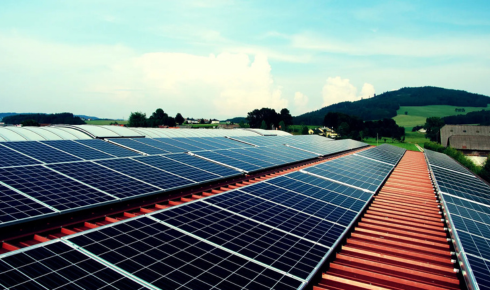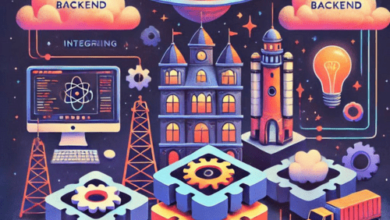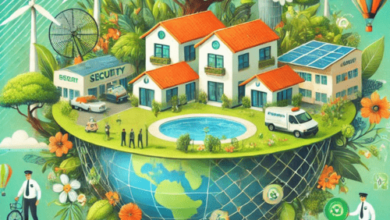Solar Power System, Solar Rooftop System

As the world shifts toward sustainable and renewable energy solutions, solar energy is emerging as one of the most effective options for both households and businesses. A solar power system allows users to generate their own electricity from sunlight, reducing reliance on conventional grid power and lowering monthly bills. With advancements in technology and government support, solar energy is no longer a futuristic concept—it is a practical solution that is being adopted rapidly across India and worldwide.
Understanding Solar Power Systems
A solar power system works by converting sunlight into usable electricity through solar panels. These panels capture solar energy, which is then converted into direct current (DC). An inverter further converts this into alternating current (AC), which is used to power appliances and equipment. Depending on the type of system, excess electricity can either be stored in batteries for later use or fed back into the grid through net metering.
There are mainly three types of solar power systems:
- On-grid system – Connected to the main grid, it allows users to sell excess electricity back to utility companies.
- Off-grid system – Operates independently and is ideal for remote areas without access to the grid.
- Hybrid system – Combines both on-grid and off-grid features, offering flexibility with battery storage.
Each system has its own benefits, and the choice depends on energy requirements, location, and budget.
Rise of Solar Rooftop Systems
Among the most popular solar solutions today is the solar rooftop system, which is gaining popularity in urban areas where space is limited. Installing panels on rooftops provides an efficient way to utilize unused space while generating clean electricity. These systems are ideal for residential homes, apartment complexes, office buildings, educational institutions, and industrial units.
Rooftop solar systems are cost-effective and can reduce monthly electricity expenses significantly. In many cases, users recover their initial investment within a few years, after which the system continues to generate free electricity for decades. With an average lifespan of 20–25 years, rooftop systems are a long-term solution that pays for itself multiple times over.
Government Incentives and Support
One of the driving forces behind the growth of solar adoption in India is government support. Subsidies, tax benefits, and easy financing options have made solar systems more affordable for homeowners and businesses. The government’s net-metering policy allows individuals to export unused electricity to the grid, creating an additional financial benefit.
Several state and central schemes are actively encouraging citizens to adopt rooftop solar. For example, the Ministry of New and Renewable Energy (MNRE) has launched initiatives to provide subsidies for residential rooftop installations, making it easier for families to switch to solar.
Environmental Benefits of Solar Systems
Apart from cost savings, solar power systems have immense environmental benefits. They reduce carbon emissions, minimize dependency on fossil fuels, and help combat climate change. By adopting solar energy, individuals and businesses contribute to a cleaner and greener future.
How to Choose the Right System
Before installing a solar power system, it is essential to evaluate energy consumption, rooftop space, and budget. Consulting with experienced solar companies ensures proper system design, installation, and maintenance. Choosing high-quality solar panels and inverters also guarantees better performance and longer durability.
Future of Solar in India
The solar industry in India is on a steady rise, with ambitious government targets and increasing public awareness. The affordability of solar systems, combined with rising electricity costs, makes them an attractive investment for the future. As technology continues to improve, solar energy will become even more efficient and widespread, transforming the way we generate and consume power.
Conclusion
Solar power is not just a trend; it is a necessity for a sustainable future. Whether for homes, businesses, or industries, adopting solar solutions ensures long-term savings, energy independence, and environmental responsibility. With rooftop systems making solar more accessible than ever, the future of renewable energy looks bright.




